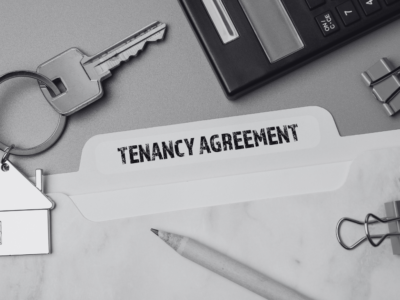In a survey of ALEP (the Association of Leasehold Enfranchisement Practitioners) members, 80% agreed with government’s consultation on ground rent reform. The statement posited that ‘residential ground rents can have a negative or undesirable impact on the sale of leasehold properties.’
As part of the government’s broader leasehold reforms, a consultation titled “Modern Leasehold: Restricting Ground Rent for Existing Leases” is currently underway, seeking opinions on limiting the ground rents imposed on leaseholders.
ALEP, a professional body representing over 1,200 solicitors, barristers, and surveyors specializing in leasehold enfranchisement, conducted a recent survey where 81.8% of members agreed with the aforementioned statement, while 18.2% disagreed.
The Consultation.
The ground rent reform consultation by ALEP mirrored the government’s efforts and explored potential negative impacts of ground rents and ways to mitigate them. Findings from ALEP members highlighted several concerns related to ground rents as follows:
- 70% expressed that certain ground rents could impede property sales.
- 43.2% cited issues arising from unclear terms about ground rent payments during property purchase.
- 31.8% mentioned leaseholders’ lack of knowledge about the future increase in their ground rent.
- 27.3% were concerned about ground rent payments becoming more expensive over time.
- 25% pointed out that leaseholders pay ground rent without receiving a clear service in return.
- 6.8% found ground rent payments unaffordable.
- 2.3% reported no problems with ground rents.
Concerning potential solutions, members favoured capping ground rent at a percentage of the property value (38.6%). This is followed by capping at an absolute value (27.3%). Plus capping at a peppercorn (20.5%). Notably, the government’s preference aligns with capping ground rent at a peppercorn, but members expressed apprehension about its disproportionately negative impact on freeholders and investors.
75% believe that if a ground rent cap is introduced, compensation should be paid to freeholders and/or intermediate landlords.
A majority of members (47.7%) supported an increase tied to a predetermined index, such as the Retail Price Index (RPI). Exemptions to ground rent caps were also considered by ALEP members, with significant support for various categories, including home reversion plans, business leases, negotiated agreements, leases of fewer than 21 years, and community-led housing.
Mark Chick, Director of ALEP
Chick emphasized that members generally support the government’s proposals. However, they also highlighted the need for nuanced consideration in addressing ‘problem’ ground rents. The suggestion? A targeted approach rather than a broad restriction.
Experts now think that further detailed discussions are needed before it progresses to legislation. It underscores the importance of professional advice when dealing with leasehold properties to prevent unexpected costs. ALEP’s ongoing efforts aim to raise public awareness of these issues.
Many issues related to ground rents stem from what can be termed an ‘advice failure’. ALEP’s website offers a tool to help those seeking suitable professionals in their area.
Visit our previous article by visiting Landlords Pressure Despite Uk Rental Costs Drop.






















The campaigners advance the argument that ground rent is for “no service” and should be capped at nil Implicit in that statement is that they believe that the premium the developer receives is enough reward for their efforts, implying that the developer is greedy in asking for continuing remuneration by way of a ground rent each year.
If we run with that argument, it would require the campaigners to demonstrate that the developer indeed got the correct price by picking apart the costs the developer incurred (perhaps decades ago) and applying a suitable profit mark up. If it was discovered the developer did very well then (by the standards set by the campaigners), the next hurdle the campaigners must cross is to show in English Law where there is legislation restricting the profit a developer can make. There is of course no such legislation.
Ground rent is an integral part of the overall consideration the developer seeks on sale. It is fully disclosed and the purchaser with their solicitor reflects on it for a couple of months.
Ground rents that are onerous are rents that affect the value. Having an onerous rent may not be unjust, it depends on whether the premium paid for the property reflected the rent. An onerous rent (i.e., a large rent) is a flag being waved, and the purchaser should consider whether the premium with this rent makes for a suitable bargain. The fact they signed up implies surely that at least the INITIAL rent was ok.
However, if the rent has a pernicious element to it, i.e., it rises by far more than inflation, then these terms need to be addressed.
Therefore, I would suggest that the initial ground rent set in the lease should remain whatever its initial size, and on the various review dates the rent rises either by what is set out in the lease OR if lower the movement in the RPI. This will take out the sting on the pernicious rents, which really are the only problem.
I believe that the 10-year doubling of ground rents has created a lightening conductor that brings down to earth all the negativity surrounding leasehold management.